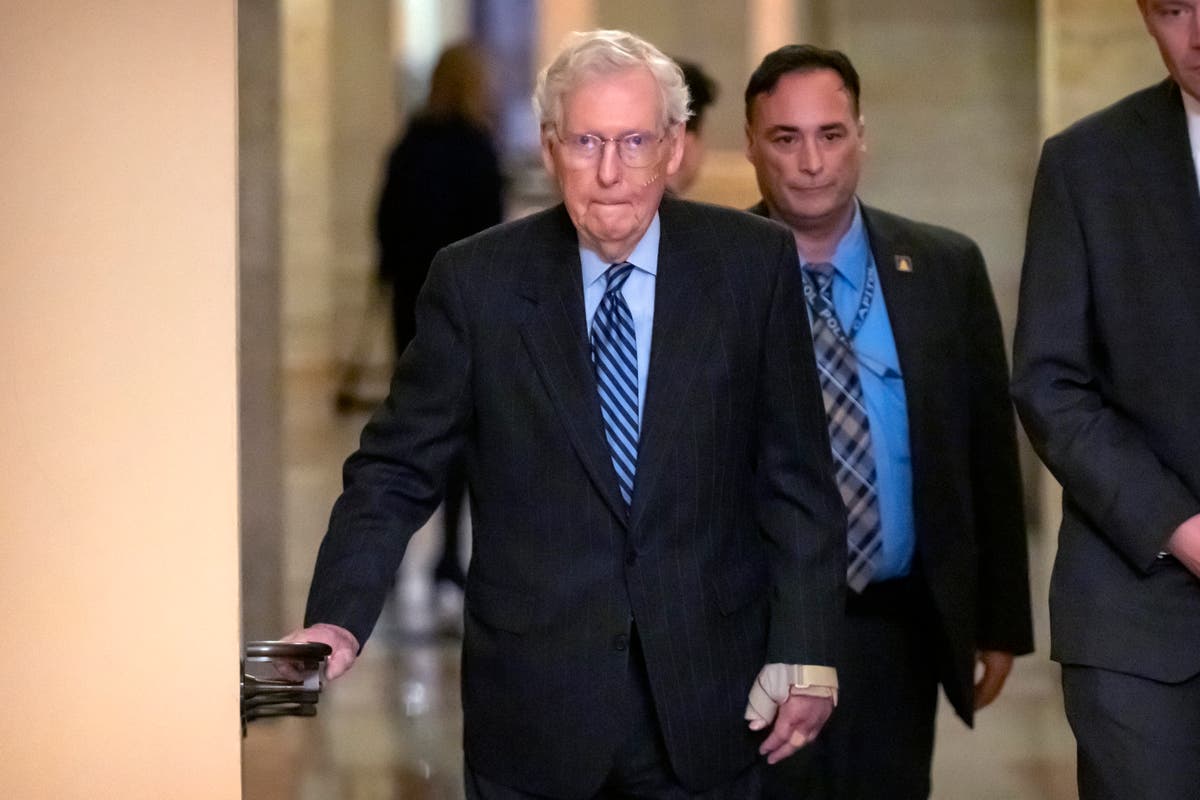Senate Minority Leader Mitch McConnell is now in his final weeks as the top Republican in the Senate. And he’s spending those weeks sending hints about his dissatisfaction at the direction of President-elect Donald Trump’s potential administration.
McConnell’s influence has severely diminished in recent years. His attempt to strike a compromise bill that would swap border security for aid to Ukraine failed. The newer, more Trump-aligned Republicans in Congress openly criticize him. And last week, he suffered another fall during Republicans’ weekly lunch. He returned looking decidedly frail.
At the same time, McConnell is making his presence known. He poured in millions of dollars this election cycle to give Trump and Republicans a majority in the Senate. Senate Minority Whip John Thune, McConnell’s deputy, also beat out the MAGA-aligned Rick Scott to become majority leader after McConnell retires. And while McConnell himself will not lead Republicans anymore, he will be chairman of the Senate Rules Committee and the chairman of the subcommittee on defense, which is an ideal job for a foreign policy hawk like him.
Much like Nancy Pelosi, the former House speaker who occupied a similar spot in the House Democratic caucus, McConnell has been using the clout that he has built throughout his long tenure. On Monday, he published an essay in Foreign Affairs warning of the dangers of isolationism.
“To pretend that the United States can focus on just one threat at a time, that its credibility is divisible, or that it can afford to shrug off faraway chaos as irrelevant is to ignore its global interests and its adversaries’ global designs. America will not be made great again by those who simply want to manage its decline,” he wrote, extremely pointedly.
Seeing McConnell trying to pressure Trump might surprise some. After all, McConnell holding up a Supreme Court seat in 2016 contributed to Trump winning the presidency the first time. And his decision to acquit Trump in 2021 after the January 6 riot did the same. McConnell also ushered through Trump’s major legacy item: an army of conservative jurists throughout the federal bench and the US Supreme Court.
But he has long seen support for Ukraine as his legacy item. Last week, he delivered an address at the Ronald Reagan Presidential Library in Simi Valley, California, where he — once again — warned about the dangers of isolationism.
But McConnell’s criticisms of Trump’s approach are not reserved for foreign policy. He’s also come out in defense of vaccines, even as Trump has nominated increasingly anti-vaccine officials to work in his administration. After The New York Times reported that Robert F Kennedy Jr’s attorney Aaron Siri once sought to revoke its approval of the polio vaccine, McConnell, a polio survivor, defended vaccinations.
“The polio vaccine has saved millions of lives and held out the promise of eradicating a terrible disease,” he said. “Efforts to undermine public confidence in proven cures are not just uninformed — they’re dangerous.”
But McConnell faces numerous headwinds even as he takes a stand. Conservatives have never fully trusted him, with many accusing him of being a “RINO” (Republican in name only) because of his willingness to work with Joe Biden and other Democrats. Unlike Pelosi, he is not a beloved figure among the base of his party. And his word does not carry as much weight with Republican voters or polticians the way Pelosi’s did when she pushed have Biden step aside earlier this year.
At the same time, given his advanced age and the fact he is unlikely to run for Senate again, he can try to use what influence he has left and his authority within the Senate Republican conference to pull the GOP back from its worst impulses. Whether Republicans will listen is another question altogether.

